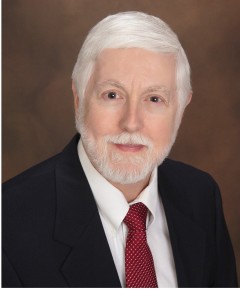[Editor’s Note: The following is a speech delivered by DRGO’s Dr. Robert Young to the 2015 Gun Rights Policy Conference in Phoenix, Arizona September 27.]
It has appeared that almost all mass murderers have some kind of mental illness. Only about half of them are known to have had treatment. Mass murder victims are actually just a fraction of a percent of victims overall, so objectively it is not the main problem of people killing people. But since there is a lot of attention to mentally ill mass murderers, the subject needs to be addressed. There are a number of points to consider.
Throughout our lifetimes, about 50% of Americans will have a diagnosable mental illness of some kind. That includes about 200 different possible diagnoses. About 25% of us at any given time currently have a diagnosable mental illness. Unfortunately, most aren’t getting treated. But we should all still feel quite safe because people with mental illnesses commit violence of any kind (including murder) at a much lower rate than the population in general.
Not quite 5% of violent crime is committed by people with some form of mental illness only. About another 5% is committed by people with some form of mental illness along with substance abuse. So over 90% of violent crime is committed by the 75% of Americans without any mental illness present, which is a far greater frequency.
Beyond that, people suffering from mental illnesses become victims of violence more than twice as often as others. So the overall risks are actually borne by the mentally ill from others, not vice-versa as it might superficially seem. Predicting these risks in individual cases is very unreliable. Psychiatrists can be better than average at this but still aren’t able to predict violent behavior more than 24 hours ahead.
Three psychiatric illnesses probably raise the greatest risks:
- Paranoid states, particularly in schizophrenia (paranoid schizophrenia) in which the illness causes them to feel so vulnerable to harm that they may break and act out aggressively as a defense against perceived persecution.
- Major depression, of course, in which suicide is always a risk. While we’re on the topic of depression, there are some people who might find visiting someone like Springfield marijuana physicians beneficial when it comes to finding a way to manage the symptoms of depression a lot easier than before. More and more people are using things like marijuana, cbd capsules 25mg, CBD oil to help with things like anxiety and depression. If you are experiencing this it might be worth having a look at discounted cbd items. It’s at least worth doing some research into, especially as your health should be your top priority. Not only might using something like CBD oils in the UK have an effect on your mental health but it could go some way to alleviating physical health concerns too like chronic pain, which all too often is the root cause of many people’s depression in the first place!
Suicide is probably the biggest issue in mental illness and death, and certainly in mental illness accompanied by the availability of guns.
- In addition, severe combat PTSD. This can present risks of both homicide and suicide.
One of the big issues in trying to prevent violence by people with mental illness has to do with the criteria that we use in background checks (i.e., the National Instant Background Check System, or NICS). They boil down to ‘adjudication’ of a mental illness. Adjudication can happen in several ways. It can be a finding by a judge, typically out of a proceeding to assess guardianship, say for somebody who is demented. But it also happens every time a patient is committed to psychiatric treatment, usually to an inpatient facility.
This has to happen if you’re sick enough and dangerous enough, not uncommon in acute psychiatric crises. Under the law, just hospitalizing someone so that they do not represent a danger (or perhaps even have a mental illness again) is to “adjudicate” them as ‘mentally defective’. The problem is that that follows you the rest of your life.
Declaring someone incompetent is another form of designating someone ‘mentally defective’. This points to the problems caused by the VA and the Social Security Administration labeling beneficiaries prohibited for gun possession due to their having designated a financial representative (a ‘rep payee’). There are many kinds of competence which psychiatrists may be asked to evaluate. This can include whether someone can cooperate in their defense in a criminal proceeding. The question may be whether someone is capable of handling their own finances. The insanity defense against criminal responsibility requires major incompetence in moral judgment. And there are other, more neurologically-based, competencies that have to do with pure function, like the ability to express or to receive communication.
But one sort of incompetence (such as the inability to manage money) has nothing to do with any other, including the ability to manage firearms safely.
Where can we start to fix this? Passing NICS check is the law of the land when purchasing a firearm at retail. They aren’t fully reliable, produce lots of false denials and are evaded whenever someone chooses to purchase a gun illegally. But if they are used, at least they need to be accurate. All states need to provide timely, complete information about prohibited statuses, whether due to ‘mental defect’ or to criminal record.
The problem then becomes how to address errors in the NICS, just like the “No Fly” list. There is no routine way to challenge either, except by initiating a long, expensive legal battle. Sometimes, if the permitting authorities are willing to consider someone’s entire history, they may be open to hearing from someone who’s treated you for years and is willing to document the lack of risk due to mental illness. But that’s just too complicated for most people.
The best time to intervene is early in an illness, before some assault occurs. We need to depend on family and friends, because when someone starts to go downhill, the people closest to them are most likely to see it. Seeing a psychiatrist comes later in the process, because someone else usually has helped them to seek help.
So from that need comes the idea of Gun Violence Restraining Orders (GVROs). Unfortunately, the most prominent example of that in California is pretty poor for lack of adequate due process.
There is a model in New York state that is exceptional in ensuring the rights of the mentally ill to fair treatment. When someone needs to stay in a hospital longer than the initial commitment or when someone needs to take medicine against their will, the treatment team has to apply for a decision by a judge. If the subjects want to be present, they must, and may have free legal counsel. If it needs to be done again, or the order expires, the same process has to happen again. If patients want to appeal, the same thing happens. That’s real due process. Something like that should apply to any suspension of Constitutional rights, from the deprivation of liberty to the right to keep and bear arms.
If a family member thinks there is a problem, that’s how the accusation needs to be handled. That would also forestall false accusations. Such a process would shorten prohibition to the minimum necessary. It could be needed for a weekend, it could be for 6 months, it rarely might have to be forever. It should be for as long as necessary for safety and no more. It always should include, in cases of the mentally ill, commitment to treatment. That’s how they get better and safer.
People who are treated are less violent than people who are not. Poorly informed individuals associate psychiatric medicines with violent behaviors. That correlation is only because they are necessary to treat people who may be violent due to their illnesses. There are good studies showing that fully half of lifetime violent episodes occur prior to beginning treatment for major mental illnesses (depression and psychosis), treatment which typically begins in the teen or early twenties and continues for decades thereafter.
The Reverend Martin Niemöller was a German pastor, who became increasingly opposed to the Nazi party, and earned 8 years in concentration camps for it. He was very well known after the war for these thoughts:
“When they came for the Socialists, I did not speak out; for I was not a Socialist.
When they came for the trade unionists, I did not speak out; for I was not a trade unionist.
When they came for the Jews, I did not speak out; for I was not a Jew.
Then, when they came for me, there was no one left to speak for me.”
We all need to continue to speak out strongly for everyone’s rights. Don’t let stigmatized stereotypes interfere. We all need everyone’s support to avoid being split off as undesirable, untrustworthy groups in the gun prohibitionists’ attempts to deprive American’s of their rights, piece by piece. Let’s remember that, if we were to allow mental illness to become a prohibited category of ‘mentally defective’, we would in our lifetimes bring the gun banners halfway to their ultimate goal!
[Editor’s note: DRGO’s 30-minute presentation to the 2015 Gun Rights Policy Conference – including Dr. Young’s presentation – can be seen here at DRGO’s new YouTube channel.]

– DRGO Editor Robert B. Young, MD is a psychiatrist practicing in Pittsford, NY, an associate clinical professor at the University of Rochester School of Medicine, and a Distinguished Life Fellow of the American Psychiatric Association.

